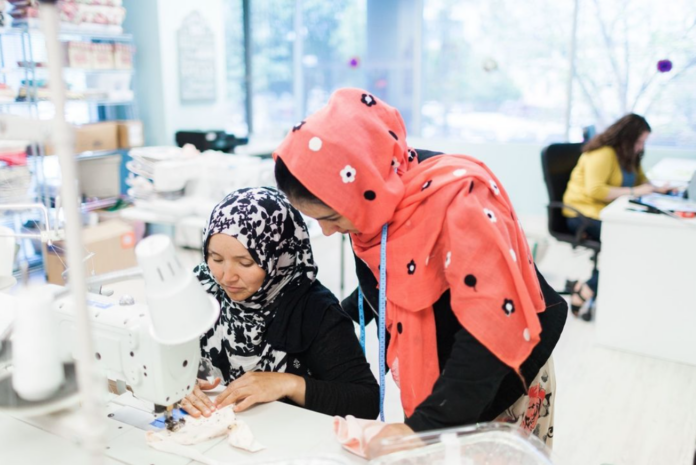Rebecca van Bergen isn’t one for talking about herself. The founder of nonprofit Nest has been quietly pioneering the artisan rights movement for the past 15 years.
“There are some 300 million women primarily doing home-based hand work around the world, yet this sector has been cast as niche and non-scalable,” van Bergen said during a recent phone conversation with TZR. “We see this as one of the most significant gender inequities in the world today, and it’s our mission to right that imbalance.”
Nest s a direct manifestation of that goal — the nonprofit has been van Bergen’s fair trade brainchild since 2006. Since then, it has served as the middleman between thousands of home-based artisans and big-name brands interested in ethically sourced, handcrafted goods, including West Elm, Target, Patagonia, Mara Hoffman, Madewell, H&M, and more.
“We want to reframe how the world sees the home working sector and make people understand the importance of these artisans,” adds van Bergen. “This isn’t an ‘invisible workforce’ or a class of ‘ghost workers’ — it’s moms who are contributing to the supply chain from home because they have multiple children and can’t afford childcare.”
Nest’s work really benefits all involved: It helps large brands become more sustainable, provide consumers with handcrafted, ethically sourced products, and give home-based crafters the compensation, recognition, and standards they deserve. Its efforts have slowly created a more circular, human-centric supply chain in the states and beyond.
“Some companies still have no home worker policies, and in some countries the laws around home-based labor are less stringent and some do not even require minimum wage requirements met!”
“We hope to offer standards and labor protections for home workers, and in turn reduce this exploitation.”
Source:
Clark, K. (2021, April 30). Meet the woman quietly leading the hand worker movement for the past 15 years. The Zoe Report. Retrieved September 23, 2021, from https://www.thezoereport.com/living/nest-nonprofit-handworker-movement-rebecca-van-bergen.
Comment:
I found the company Nest when I was looking up different successful non-profit business models. I found this really interesting because of how this was successfully scaled, though people didn’t think it would be because it relies on individual home-based artisans. This model reminds me of Uber and similar services within the transportation scope because it relies on individuals, working with their own equipment, to deliver a service to other individuals. Uber is different not just because it is delivering a service rather than goods, but because it is geared towards an individual. But with Nest, it is an individual supplying for bigger companies like Madewell and other stores. This has me thinking about what it would look like to have individuals supply a bigger transportation service like Ubering a bus or something like that. Overall, I just found it interesting to think about utilizing talents of individuals on a larger scale.




